Gas formation in the intestine is a normal process in the human body, which occurs during digestion. However, with some pathologies of the digestive organs, this process proceeds very violently and for a long time, which causes a person not only discomfort, but also a cause of aesthetic problems. We will tell you about what is the reason and how to get rid of gas formation in the intestine.
Content
- The causes of gas formation in the intestines in men and women
- Why gas formation occurs in the intestines
- Types of gas formation
- Gas formation in the intestines in children
- Gas formation in the intestines during pregnancy
- The manifestation of excess gas formation
- Diagnosis of increased gas formation in the intestines
- Treatment of excessive intestinal gas formation
- Diet in gas formation
- Folk remedies for gas formation in the intestines
- Gas formation in the intestine: video
The causes of gas formation in the intestines in men and women
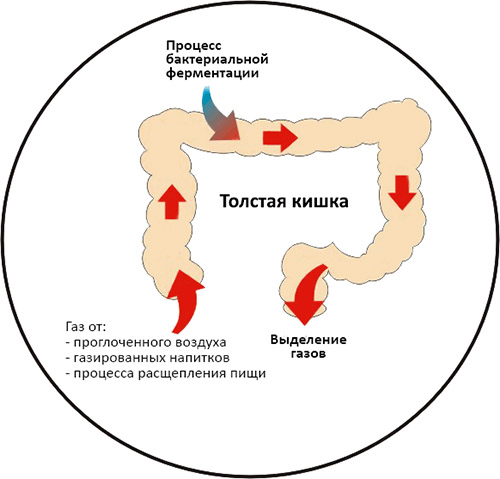
The formation of gases in the human body occurs for two reasons:
- Air swallowing with food. Every time a person swallows food, a certain amount of air enters the stomach. As a rule, it is removed along with the belching, but part of it penetrates the intestines. A large amount of air enters the stomach during conversations at eating, drinking carbonated drinks, drinking through a tube, chewing chewing gum. The less air is removed during belching, the more it will fall into the intestines.
- The activity of bacteria in the intestines. During digestion of food in the intestines, several types of gases are formed using special bacteria: nitrogen, carbon dioxide, hydrogen and a small amount of methane. These gases are virtually smell, so they do not cause discomfort either to a person or others. Another thing is hydrogen sulfide. It is formed due to the activity of bacteria that live and work in the large intestine. It is "thanks to" hydrogen sulfide the smell of intestinal gases becomes completely unpleasant.
The gas formation mechanism is a normal phenomenon in the human body and with its full functioning there are no problems. However, excessive gas formation and violation of gases can lead to difficulties, such as bloating, disturbance of digestion and even poisoning, since part of the gases through the intestines is absorbed into the bloodstream.
Why gas formation occurs in the intestines

There are many reasons for excessive gas formation:
- One of the main ones is the use of certain products, the digestion of which is associated with an increase in gas release.
- Also, an increase in gas formation can lead to digestive problem. Unberted to the end, food provokes excessive activity of bacteria, which leads to an increase in gas release.
- The active process of gas formation may be the result of a change in the bacterial composition of the intestine. The predominance of pathogenic bacteria in the intestines and the lack of normal flora can provoke the processes of fermentation and decay, which lead to an increase in gas formation.
- Often, problems that are associated with increased gas formation leads a violation of the gastrointestinal motility. This often becomes the cause of gas formation in the child in the intestines. Especially with the introduction of top dressing. This leads to prolonged finding products in the intestines, which causes excessive gas release.
- Violation of motility in adults is observed:
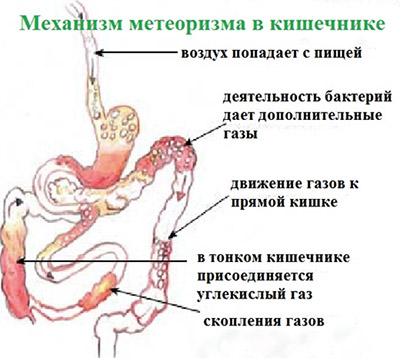
- Pregnancy.
- After the transactions on the gastrointestinal tract.
- After taking some drugs.
- With congenital intestinal abnormalities.
- In case of circulatory disorders in the intestines.
- Also, a violation of intestinal motility can be caused by the presence of mechanical obstacles to passage. It can be tumors, polyps, adhesions, etc.
Types of gas formation

Depending on the nature of its occurrence, flatulence is distinguished by:
- Alimentary. The cause of alimentary flatulence is the use of products that increase gas formation.
- Degisial flatulence. It occurs due to impaired digestive function.
- Retiotic flatulence. The reason for its occurrence is a shift in the intestinal flora, due to the predominance of pathogenic flora, the activity of which is accompanied by a large amount of gas, which leads to bloating.
- Mechanical flatulence. It occurs due to disorder of the evacuation function of the intestine.
- Circulatory flatulence. It occurs due to a violation of gas absorption into the blood.
- High -altitude flatulence. This type of violation of gas formation is associated with lifting a person to a height. In the mountains, atmospheric pressure is much lower, so it is not able to restrain the pressure of the gases inside the intestines.
Gas formation in the intestines in children

The causes of excess gas formation in children are practically no different from adults. So, in infants, when the child’s food falls in the process of sucking milk from the chest or bottle, the formation of gases can become a consequence of the incorrect attachment to the chest or the presence of air in the mixture. When the mixture in a bottle for feeding ends, and the child holds it horizontally, along with milk, he can absorb a certain amount of air. Typically, children register him immediately after feeding (for this child they are held vertically), but in some cases he can cause problems. Often, kids suffer from this problem after translating the diet of their nutrition from milk (milk mixture) to harder food.
Older children suffer from gas formation mainly due to the wrong diet and diet. A rush in food, conversations in the dining room, swallowing large portions on the go become the cause of not only excess gas formation, but also other diseases of the gastrointestinal tract.
To treat problems with the stomach in infants, they give them tea with fenhel as drinking, they are more kept in an upright position, and a spasm is removed by laying a warm compress on the stomach. If the problem does not disappear by itself, you need to contact a specialist.
Gas formation in the intestines during pregnancy
It is worth saying that gas formation can occur during pregnancy, when the growing fetus exerts pressure on the intestines. In addition, hormonal restructuring occurs in the female body in this period, as a result of which the release of the hormone - progesterone, which helps to relax the smooth muscles of the body, increases. Therefore, gas formation in the intestines during pregnancy is a normal phenomenon and it should not be afraid.
Since during pregnancy it is undesirable for women to use any drugs, you can reduce the process of gas formation by adjusting their nutrition. It should be consumed as few products that enhance the release of gases.
The manifestation of excess gas formation

The main symptoms by which you can diagnose excessive gas formation include:
- Frequent belching.
- Pain in the abdominal area.
- Bloating (flatulence).
- Abundant and frequent gas separation, which is accompanied by a fetid smell.
Belching after eating is not any deviation. This process occurs almost always when a person swallows a little air with food or consumes carbonated drinks. However, a very frequent belch that continues and long after eating is a sign of the problem. People, patients with ulcer, gastritis, reflux suffer from frequent belching. In older age, people are formed in meganxy, which is associated with a large amount of swallowed air. This leads to an increase in belching.
Pain in the intestines and gas formation are often interconnected with each other. The pains are cramped, localized throughout the area of \u200b\u200bthe abdominal cavity.
Gas separation. Normal gas separation occurs up to 20 times a day. A larger number of gas separation acts indicate pathological gas formation in the intestines.
Bloating or flatulence cannot be completely attributed to excessive gas formation, although these phenomena are interconnected. Bloating of the abdomen appears with any problems with intestinal motor skills, which is accompanied by a decrease in the rate of advancement of food.
Diagnosis of increased gas formation in the intestines
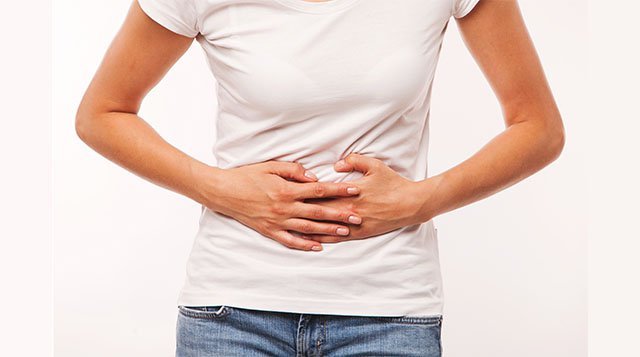
If these problems occur, it is necessary to carry out a complete diagnosis of the body in order to exclude serious diseases:
- First of all, the doctor should study the features of the diet, since the use of gas formation often lies in the use of certain products. The patient is offered to keep a diary of food use, as well as the condition after that. Often the patient is offered to make a gas separation frequency in the diary.
- People whose age is more than 50 years, should undergo a comprehensive survey of the work of the gastrointestinal tract in order to exclude oncological diseases of the intestine, namely, the colon. The endoscopic examination of the colon is mandatory, it is prescribed in case of unmotivated weight loss, frequent diarrhea.
- With a combination of constant gas formation in the intestines with frequent belching, compulsory gastroscopy of the stomach and duodenum is prescribed to exclude the presence of gastritis, gastroduodenitis or polyps. Only after a comprehensive examination is treatment.
Treatment of excessive intestinal gas formation
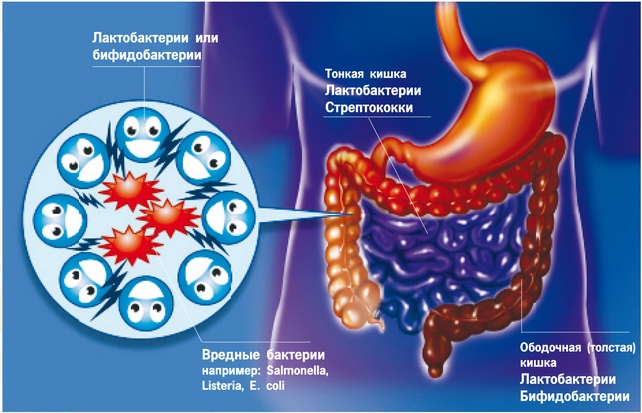
The treatment process of this problem can be divided into two parts:
- Correction of nutrition and lifestyle.
- Drug therapy.
If the disease is detected, the symptom of which is strong gas formation in the intestine, it must be treated.
Pharmacological treatment of strong gas formation in the intestines must be agreed with the attending physician. First of all, it is necessary to find the cause of this pathological condition and treat it.
To relieve unpleasant symptoms, the following preparations for gas formation in the intestine are used:
- Espumisan. Adults 2 tsp. 1 time per day. Children at 1 tsp
- Simeton. Take 20 drops three times a day.
- Activated carbon. Adults 2 tablets 2 times a day.
- Dietes. Take 1 tablet twice a day.
In case of violation of the bacterial balance of the intestine due to dysbiosis against the background of antibiotics, probiotics are used, such as:
- Linex. 1 capsule 3 times a day.
- Biforn. 1 capsule 2-3 times a day.
- Lactovit, etc.
With reflux and irritation of the colon, tablets from gas formation in the intestine are prescribed: cerucal, mete orpramide, cizapride and diets.
Diet in gas formation
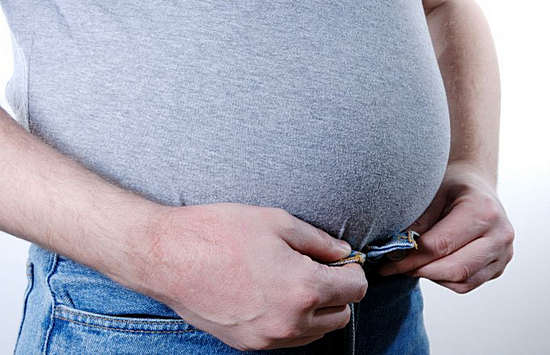
In order to reduce gas formation in the intestines, you must try to change your diet:
- Exclude products that contribute to excess gas formation in the intestine during the digestion process. The products that cause gas formation in the intestines in an adult include: all types of legumes, cabbage, apples, pears, white bread, etc.
- Stop the use of carbonated drinks, including beer and kvass.
- Change the diet towards traditional dishes, excluding the dishes of exotic cuisine.
- In addition to the diet in gas formation in the intestines, the food culture should be improved:
- Try not to talk during meals.
- Do not swallow large pieces, but chew food thoroughly.
- Do not overeat, but try to eat less doses, but more often.
- Reduce the frequency of use of chewing gum.
- Refuse smoking, especially after eating.
- Reduce the frequency of drinking alcoholic beverages.
Gas formation products:
- Caraway.
- Dill.
- Mint.
- Celery.
- Pineapple.
- Papaya.
- Asparagus.
- Low -fat yogurt.
The products that cause gas formation in the intestines include:
- legumes (peas, beans);
- apples;
- cabbage;
- beer, kvass, carbonated drinks;
- black bread;
- mutton.
Folk remedies for gas formation in the intestines

In folk medicine, there are several ways than treating gas formation in the intestines.
- Mint decoction. A great remedy for gas formation in the intestines that will help get rid of the problem. Cooking is very simple. One tablespoon of mint is poured with boiling water, and placed on a slow fire on which it boils for 5 minutes. Drink it in a chilled state.
- Rusty elm. To prepare a medicine for gas formation in the intestines, a dried bark of a given plant is used, which is abrasion to the state of powder. A ½ teaspoon of powder is poured into a glass of water and is placed boiling on a slow fire for 20 minutes. After this, the mixture is filtered and drunk 3 times a day for 1 glass.
- Fennel. 1 tbsp should add 1 tbsp per 1 cup of boiled water. Dry mixture of Fenhel. Such a decoction is drunk twice a day.
Folk methods help in most cases, however, they cannot be carried away, since they mainly relieve symptoms without paying attention to the underlying disease.









Comments
a couple of years ago, there was no side of metrogils from the same problem, there were no side effects ...
I’m not a fan of peeling at all, it saves from acne of metrogil, it also smoothes it ...
Great article! ...
I take the second course of the Capsules Climafite 911. The tides went very quickly. It became calmer, irritability went away and I sleep well ...
i also noticed - it is worth nervous, everything immediately affects the face. Therefore, I try to avoid conflicts and unpleasant people. Of the creams, I like Miaflow from wrinkles - smoothes not only small wrinkles ...